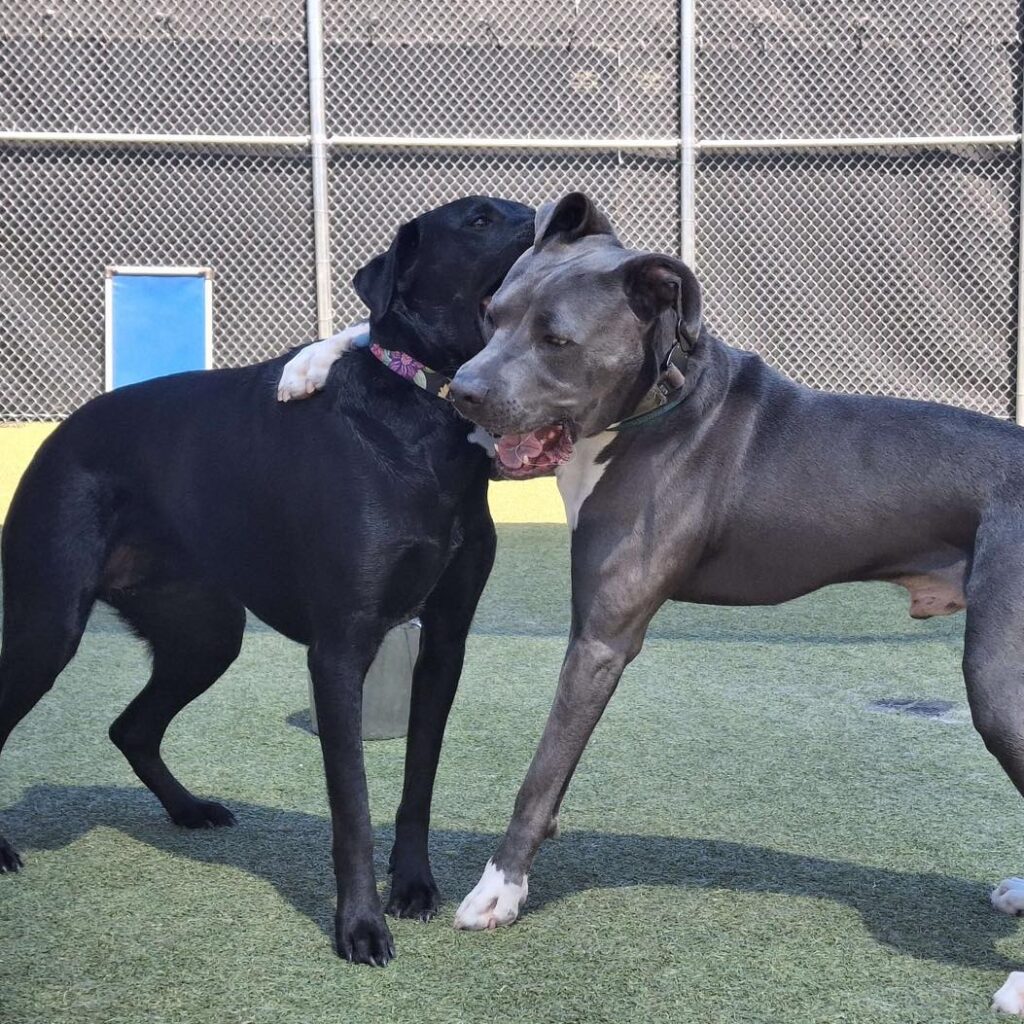
Just like people, dogs change as they grow—and that includes how they play! Puppies are little balls of energy, adults tend to settle into a rhythm, and seniors may slow down but still enjoy a good game. Here’s how play behavior shifts as dogs get older.
Puppies (Under 6 Months)
All Energy, All the Time
Puppies are super curious and love to explore the world through play.
They Play A LOT
They can go for hours and seem like they never get tired.
Learning Through Play
Play helps them understand how to interact with people and other dogs.
Figuring Out Boundaries
Rough-and-tumble play teaches important lessons like when to stop and how to be gentle.
Tip: This is the perfect time to encourage good play habits!
Adolescents (6–18 Months)
Play Gets Rougher
Teenage dogs are full of energy and might play harder than before.
Pushing Limits
They may test the rules or challenge other dogs during play.
Pickier About Playmates
They start forming preferences about who they want to play with.
Watch for Overexcitement
These dogs can get overstimulated quickly, so supervision is key.
Consider structured games to help burn off energy while teaching focus.
Adult Dogs (18 Months to Around 7 Years)
They Know What They Like
Adults often have a favorite toy, game, or playmate.
More Chill
They still enjoy playing, but usually in a calmer way.
Selective Players
Some are still super playful—others, not so much.
Different for Every Dog
One adult dog might chase a ball all day, while another just wants belly rubs.
Senior Dogs (7+ Years)
Slower Pace
Older dogs may not have the same stamina they used to.
Mobility Issues
Things like arthritis can make high-energy games uncomfortable.
Adjust the Game
Try gentler play like short tug-of-war, food puzzles, or sniff-and-find games.
Mental Changes Too
Cognitive decline may affect how they interact or understand play.
Play helps seniors stay mentally sharp and emotionally connected.
Key Things to Remember
- Every Dog’s Different: Age is a factor, but personality matters too.
- Health = Playfulness: A dog’s health can affect how much (or how little) they want to play.
- Start Young: Dogs who play and socialize early tend to grow into confident, happy adults.
- Always Supervise: Make sure play stays safe and fun for everyone involved—especially when mixing dogs of different ages or sizes.
Keep Play Fun at Any Age
Understanding how your dog’s play changes as they grow helps you give them what they need at every stage of life. Whether they’re full of puppy zoomies or just want a quiet game of fetch, playtime is always a chance to bond.
Want more tips? Subscribe to our newsletter for weekly dog-friendly games, training tips, and more! Simply email info@theranchpetresort.com and ask to be added to the email list!

